Anitta: on the album she staked her life on
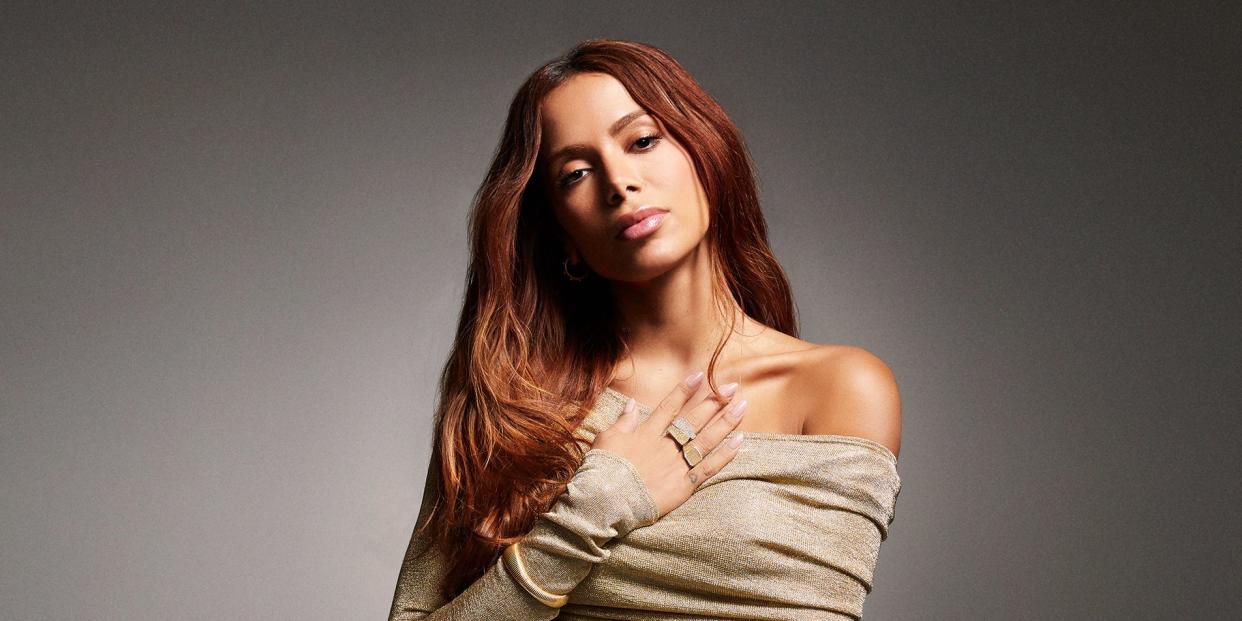
- Oops!Something went wrong.Please try again later.
- Oops!Something went wrong.Please try again later.
São Paulo is sizzling. Drums lead a body-rolling beat, snares crackle, brass instruments trill along to rapid basslines – this is funk carioca, a genre born in Brazil’s favelas. Caipirinha cocktails held aloft sprinkle the crowds of sparkly, skimpily-dressed revellers. You’d be forgiven for thinking this was the main event, but this is just how Brazilians do it: they put their heart, soul, and slinky hips into every warm-up.
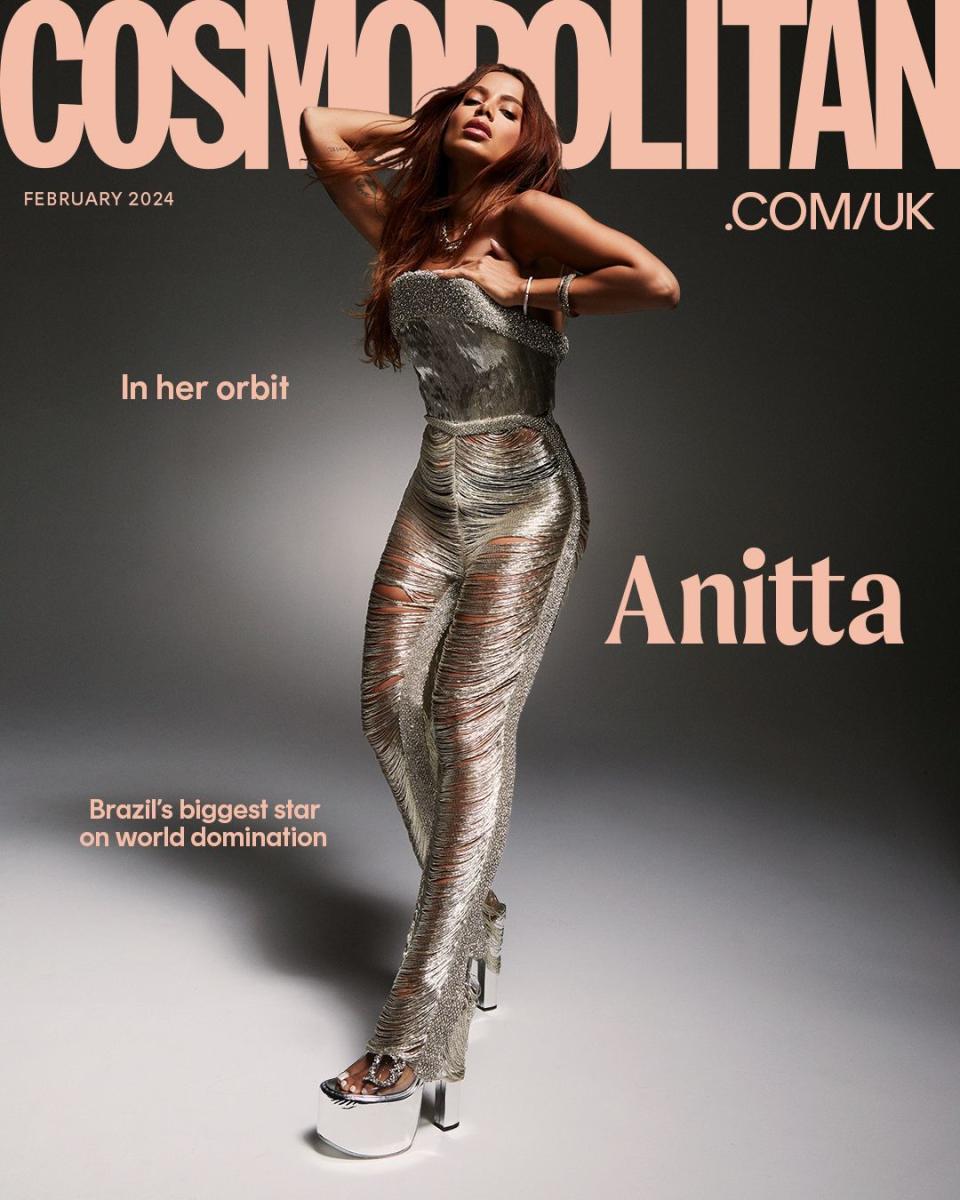
Brazil's carnivals are expected to attract 46 million in February, with 15 million to São Paulo. Today, all eyes are on Anitta: the country's most influential, hardest working pop star. Five weeks, 10 cities, 11 shows, 45 hours of glam, over 50 hours of high-energy performance all culminate here in São Paulo, one of the final stops on her pre-carnival tour. Yep, the party before the party.
Anitta struts onstage in a black, bejeweled halter neck and hotpants, a fringed cowboy hat and rainbow ribbon wings. She beams through her sunglasses, auburn hair streaming behind her. She is magnetic to watch, gyrating and grinding with a troupe of back-up dancers, belting her notes effortlessly, and blowing kisses to the crowd when their voices surge over hers. When she reaches "Envolver", they scream every word. Anitta drops down to grind horizontally – a move that’s become a viral TikTok challenge – and the crowd is ecstatic. She moves through her blend of sensual, sex-positive pop, funk and trap, beats that keep the atmosphere frenetic. “You'll be fallin' in love with a girl from Rio,” she sings. The crowd screams again – confirming the love-fest.
“No matter what’s happening or where my career goes, this is the season where I'll always be here – I’ll always be performing,” Anitta says when we catch up the next day from her São Paulo hotel room. “Carnival is a big deal for us Brazilians. My concerts have been packed all over the country.”
She settles into our chat after some morning yoga and meditation. She’s make-up free, wearing her long hair down and a white t-shirt embroidered with her star sign, Aries.
“The actual carnival starts this coming Thursday,” Anitta says.
So, tomorrow? A pause.
“Oh my gosh, yes, tomorrow!” she says, clapping her hands to her eyes.
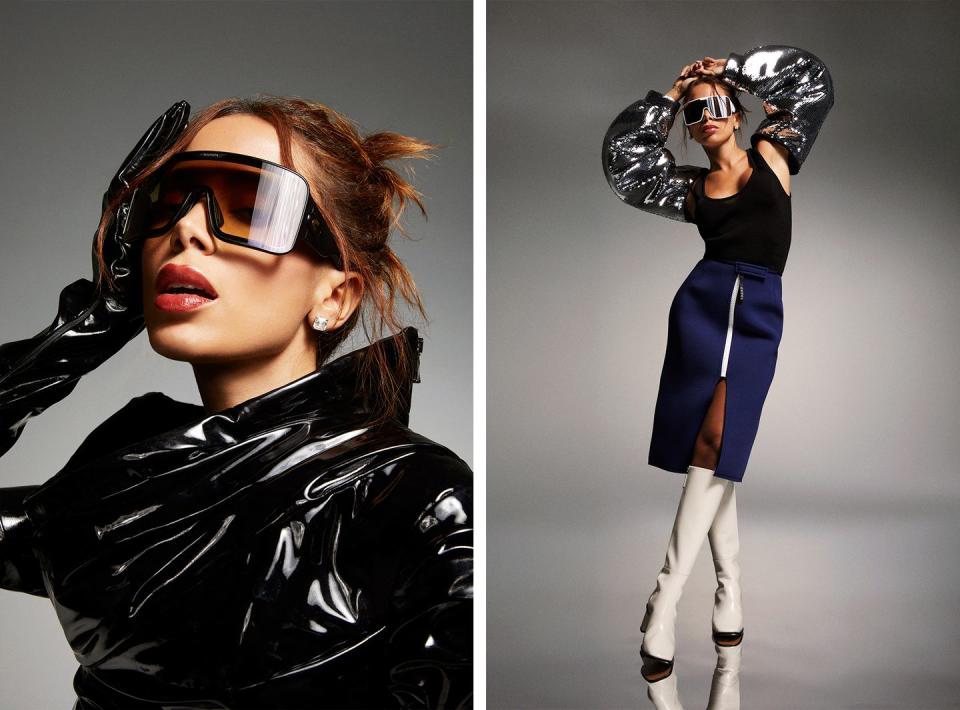
“I’m so lucky to be a part of this, but this has been tough on me physically,” she shares, dropping her shoulders in an exaggerated sigh. “My body is not responding well to the intense work I put myself through, to be honest. I’m excited, happy… but I feel weak. I’m still finding ways to prioritise rest.” Anitta will perform this weekend, before travelling to the main festivities in her hometown Rio de Janeiro.
This is the grind of a woman living two truths.
One: as a meteoric popstar in the Latin world, who’s been beating her own drum in the music industry for 15 years, with a legion of fans, seven billion YouTube views and 65 million Instagram followers.
Two: Anitta is – technically – an emerging musician on the cusp of global domination, bringing with her the organic sounds of Brazil’s working class neighbourhoods. In 2022, she made history as the first solo Latin artist to reach #1 on the global Spotify chart, and her debut Coachella performance was an exciting narrative marker. 2023 was an orgiastic year. Carving out wider recognition, she was nominated for Best New Artist at The Grammys (‘new’, a bit of a stretch), the first Brazilian artist in 57 years.
“My career has been an exercise in ego,” Anitta says, with what becomes clear is textbook Anitta clarity. “But I was born with this sense to keep pushing.”
“This journey I've chosen is very exhausting,” she continues. “It requires a lot of energy work.” While she entices the rest of the planet into her orbit, Anitta wants to keep her own feet on the ground.
This clear-eyed vision is intuitive to Anitta. Deeply spiritual, manifesting was something she’s been a natural at since she was a child. “I always knew what I was going to do,” she says. “I told my family I was going to be a singer, all my stories of exactly how my life was going to go. ‘There’s the stadium I will play at. Here’s where I’ll build my house. That’s the TV show I’ll be on.’”
Anitta was born Larissa de Macedo Machado in 1993 into Honório Gurgel, a poor Rio neighbourhood, where she was raised by her mother after her parents’ divorce. The ‘Anitta’ alter ego percolated before she even imagined a pop career, inspired by a Brazilian TV drama character. “Anitta and Larissa are totally different people,” she says. “I created ‘Anitta’ when I was a teenager. She was sexy and intelligent, feminine and aggressive – all these things at once. I wasn't even an artist yet, and I had this other me. I thought that if I was different, maybe my life would be different?” She pauses to think. “I wanted to create this persona to do the things that I didn't have the courage to do. I'm still learning more about my sense of self.”
With her grandparents’ encouragement, she began singing in the church choir at age seven, and took dance lessons. As a teenager, she performed on the favela’s funk party circuit under the Anitta stage name. She was academically gifted, and after graduating from a renowned Rio high school, began taking her music career dreams seriously.
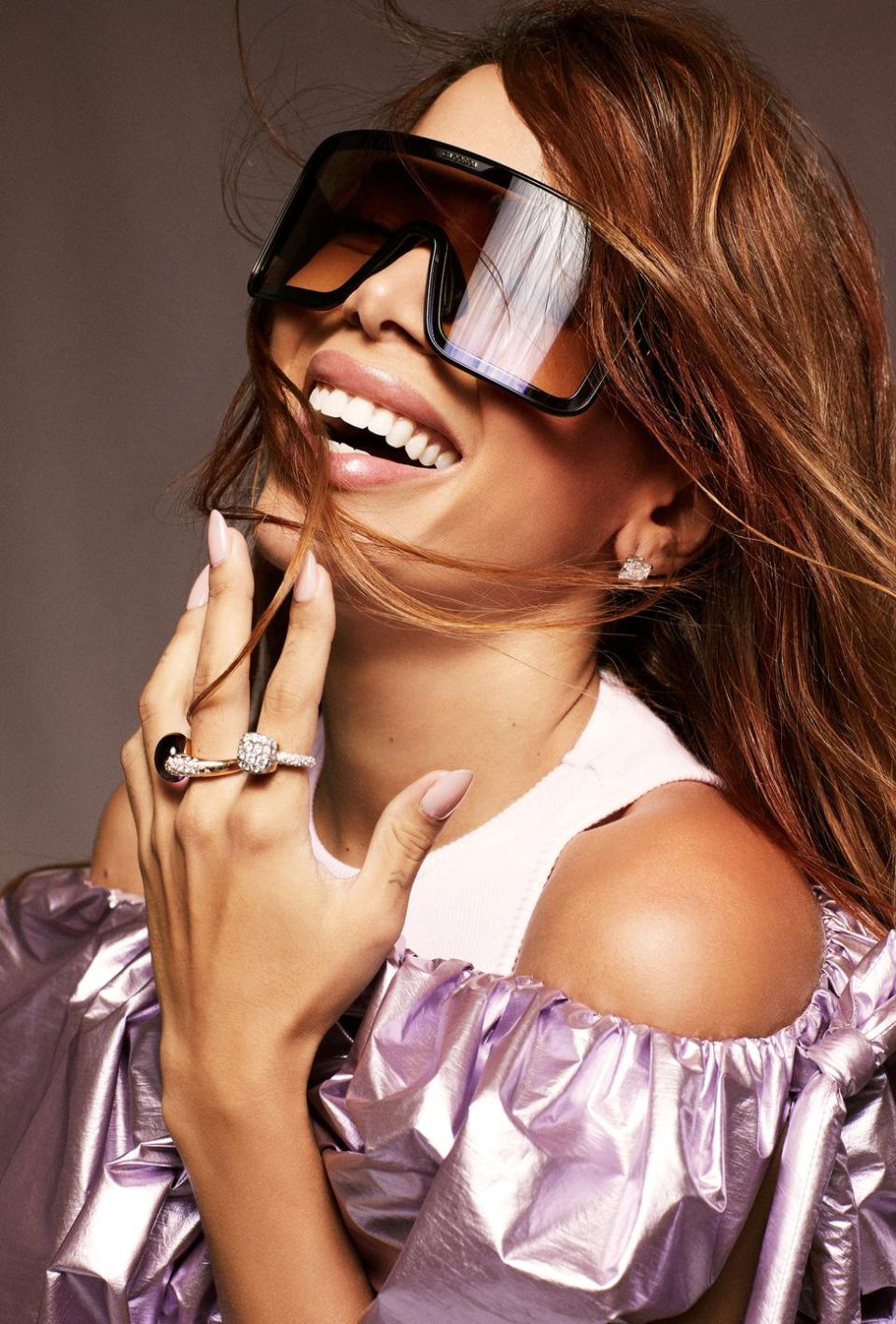
She is fiercely proud of her roots and the funk carioca sound that reverberates through them. Funk carioca was born in the favelas, but has long been associated with crime, gangs and violence. While it can be sexually explicit, it also spans social issues from poverty to racism. Multiple legislative attempts have been made to ban it.
“I feel responsible for the people from my country, to represent and inspire them,” Anitta says. Her carnival costumes pay tribute to Brazil’s cultural histories. A star-studded costume pays tribute to the late samba singer Elza Soares, and another monochrome, diamond-studded outfit is inspired by the women of Brazil's coffee industry.
She’s a self-described “businesswoman”, but she’s learned to let her team support her. “My role is to be strong, make decisions. I'm okay being the ‘big mean mom’. I’ll protect everybody when shit gets crazy.”
“Only women understand what it is to deal with this business, really,” she adds. She surrounds herself with a strong support network. Her brother, Renan Machado, co-manages her career.
Barriers in boardrooms and banal misogyny abounds, but Anitta finds her biggest insecurities within. “That comes when you're doing something very different.” She looks to the women in her family – especially her grandmother – as inspiration. “I come from a house full of powerful girls. Each one is my role model.”
Anitta is also a fierce advocate. Her maximalist music is unapologetically sexually liberated. But while bombastic and brazen, the bravado is a protection blanket. In the 2020 documentary Anitta: Made in Honório, she revealed how a boyfriend had sexually abused her at age 15. She “transformed” the trauma, and used it as motivation for her persona. “I took control of my narrative before someone else could,” she says. A journalist had found out about her abuse, and she “had to open up”.
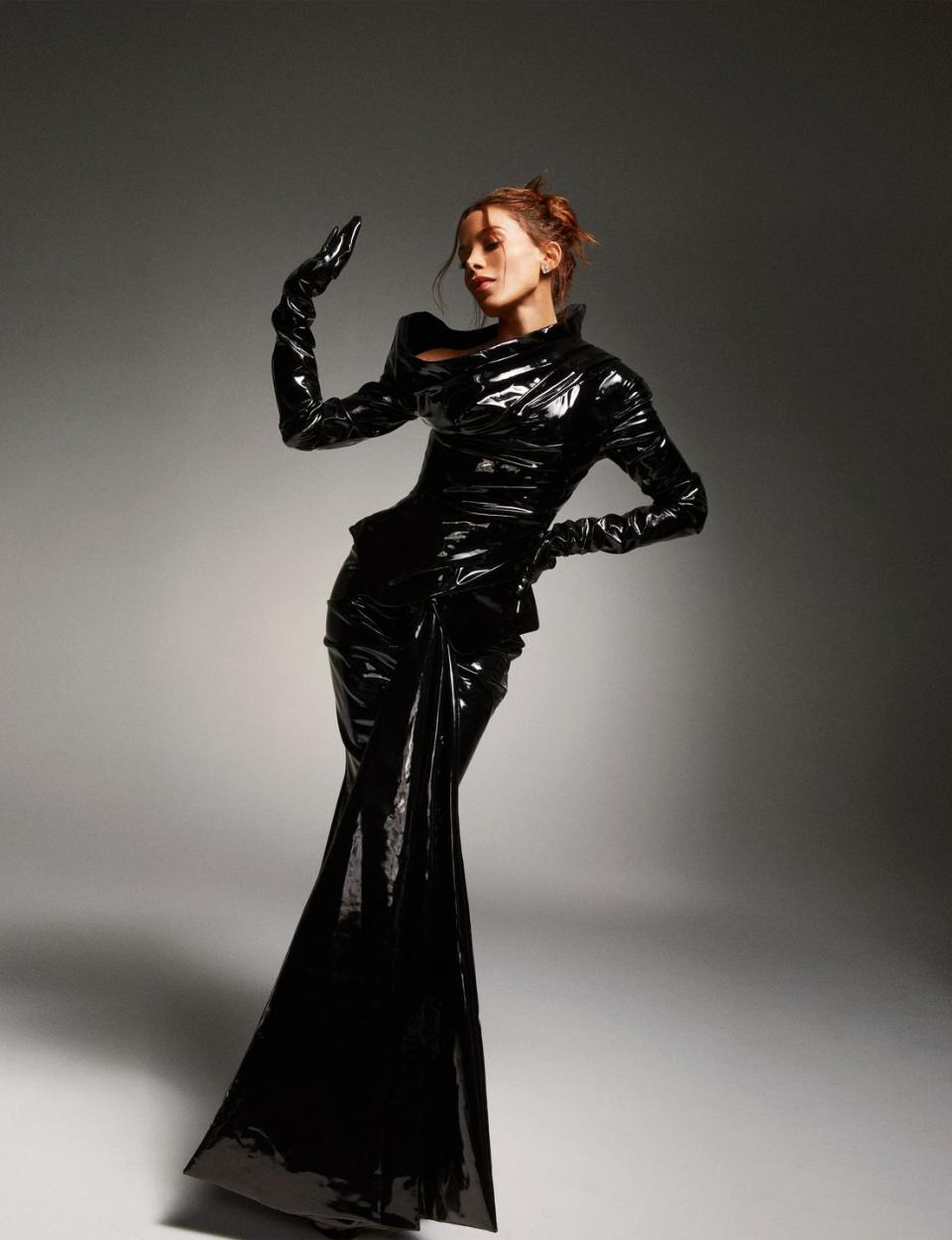
“I realised how much it helped people,” she says. “I listened to a lot of women talking about their experiences [of abuse]. I felt like I wasn't alone.”
Her music, she hopes, pulls people out of dark moments: “I understand the importance of songs to cry to, that take you into the shadows. That's never been my type of thing. I do music to make people feel light.”
In 2018 docuseries Vai Anitta, Anitta revealed she’s bisexual. It was a “practical” decision, after a picture was taken of her drunkenly kissing a woman at a party. Brazil had few openly bisexual or lesbian singers, and the LGBTQ+ community was restricted by a conservative government and alarming rates of hate crimes. Anitta’s security scrambled to have the photo deleted, but she told her team to stand down.
“People worried it would be big news – I'd lose contracts, bla bla bla,” she says, laughing with one sharp “hah”. “But I never wanted to hide.” Seizing her own story back once again, on her terms.
But Anitta still finds the friction with how she identifies frustrating. “People want to dictate how you need to behave as a bisexual,” she shares. “I've never dated a woman long term. I had a thing with a person my friends just know, but it wasn't serious... I'm the same with men! People like to say, 'oh, she says she's bisexual, but she's never had a girlfriend'. Does that make me a ‘fake bisexual’? No!”
She’s become more confident in being political, crediting her fans for that empowerment. “In Brazil, people started to ask me for my thoughts on everything,” Anitta explains. “It was important for them to hear my voice. It became a big issue when I didn't speak on politics.” In 2018, the far-right president Jair Bolsonaro was mounting his campaign. “I realised I could help move the situations,” she says.
She began to educate herself on Brazil’s political landscape. “I don't like to open my mouth when I don't know what I'm talking about.” She held Instagram Live ‘classes’ with a lawyer, and publicly endorsed progressive candidate Luiz Inácio Lula da Silva.
“I realised how dangerous it is when you get visibility and you don't know what to do with it. There's a lot of teenagers listening to me. I felt the pressure.”
But she didn’t crack. Authenticity flows through Anitta, whether on the tumult of politics, or topics that are sticking points for most other celebrities, like plastic surgery. It’s a subject she cuts through subversively. On the Versions of Me artwork, her face is shown on sculpted busts in various stages of cosmetic surgery. She wants to be honest for her younger fans especially.
“It’s important to own it. I never had a problem saying the things that I get – someone will say, 'your skin looks good'. I'll say, 'I went to this doctor and did this laser!' I want my audience to feel like they see the real thing.”
“When I did plastic surgery, I wanted people to know. When you lie, it gets harder,” she says, shrugging. “It has nothing to do with me not liking myself. It's not that I wake up and I feel ugly,” she says, pausing, changing her tone to reflect. “I think my first surgery was like that – I did feel super ugly. I was 19. It was not successful. I realised surgeries couldn’t make me happy. For me, it’s more about image reinvention. It’s in my personality to change and play. If I had time, I'd do some surgery for fun!”
“Before (authenticity) happens as an artist, it needs to be part of you as a person,” she says. “I like to break the ideas of ways people expect me to be.”
She thinks of her Anitta persona and Larissa as her “yin and yang”. “One is the female and one is the male,” she explains. “One is softness, and sees life as calm and beautiful.”
She went to see Poor Things yesterday. “There were many things with the main character that I was like, ‘wow that's so me’!” she says. “I have this one side of me that's such a kid – everything is beautiful, I'm curious, nothing bad can happen! Then the other side is strong, determined.”
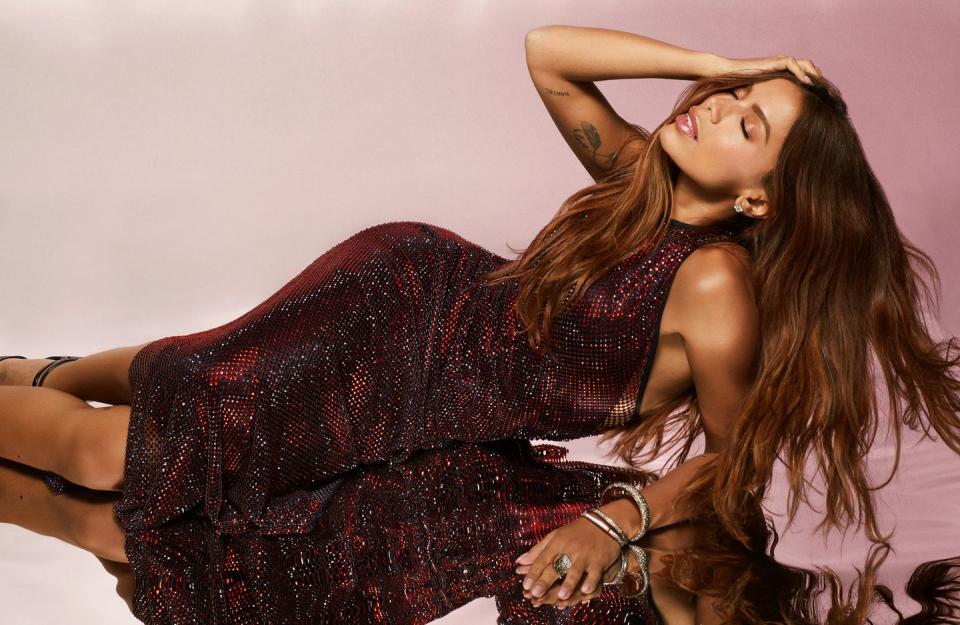
Despite Anitta’s tenacity, health issues are capricious. In late 2022 she pressed pause on superstardom to have surgery for endometriosis, battled lung problems and experienced a cancer scare. She spent months in the hospital, where she decided to make her sixth album that speaks to her truest self. She wrote from her hospital bed and guided producers in remote sessions. “I was so hopeless,” she says. “I thought it was gonna die. I wanted to do an album I thought was cool, not worrying about streaming or algorithms.”
The album is distilled down from 60 demos to 13 tantalising, taut tracks. “If I die tomorrow, it's there,” Anitta says. “As an artist, you feel pressured to put aside what you feel instinctively to deliver success. This is me at my most creative and authentic.”
Anitta delayed a cancer scan by a month because she “wanted to have a good time with the album, have fun, then confront it”. “I had a spiritual journey. I did a lot of things I wanted to do. Then I did the scan. Thank God, it was all good.”
The record reaches further into the Brazilian rhythms that raised her, and features collabs with Sam Smith and Chloe Bailey. Three singles have dropped so far: “Used To Be” is playful and sexy. “I used to be a hoe, but now I ain’t no more,” she sings. While on the surface it’s a pleasurable farewell to promiscuity, it’s a song Anitta sees as a proclamation for controlling her life path.
Anitta is aware of the risk. “It's not a promise of a hit in Brazil because it's not in Portuguese. Only one song in the charts is ever English, period,” she says. “It's not a promise in the Latin world, because it's not reggaeton. Or the English-speaking world, because it's Brazilian. But I feel like I've achieved so much already in my life.”
Would she release music under her given name? Absolutely. “It would be such a different thing,” she says. “I have this whole other world.” She considers the music she listens to alone: gospel, bolero, orchestral arrangements. “I don't know if people would even recognise me. I have a project I'm designing with a friend, but it takes a lot of Larissa time. I'll make it happen.”
She’s continuing her “crazy agenda”, with a mindset reboot. “After I got sick, I started to get connected to my spirituality.” While she feels “more distant from body and soul” amid carnival season, she’s keeping up yoga, meditation, and reading books. Acting remains a relatively new passion and she wants to pursue more roles after appearing in the popular Spanish drama Élite.
“We're used to the industry of comparison, betterment, or who sold themselves the most. Being on top isn't somewhere I always need to be. Success isn't a mentality I care to be in all the time.”
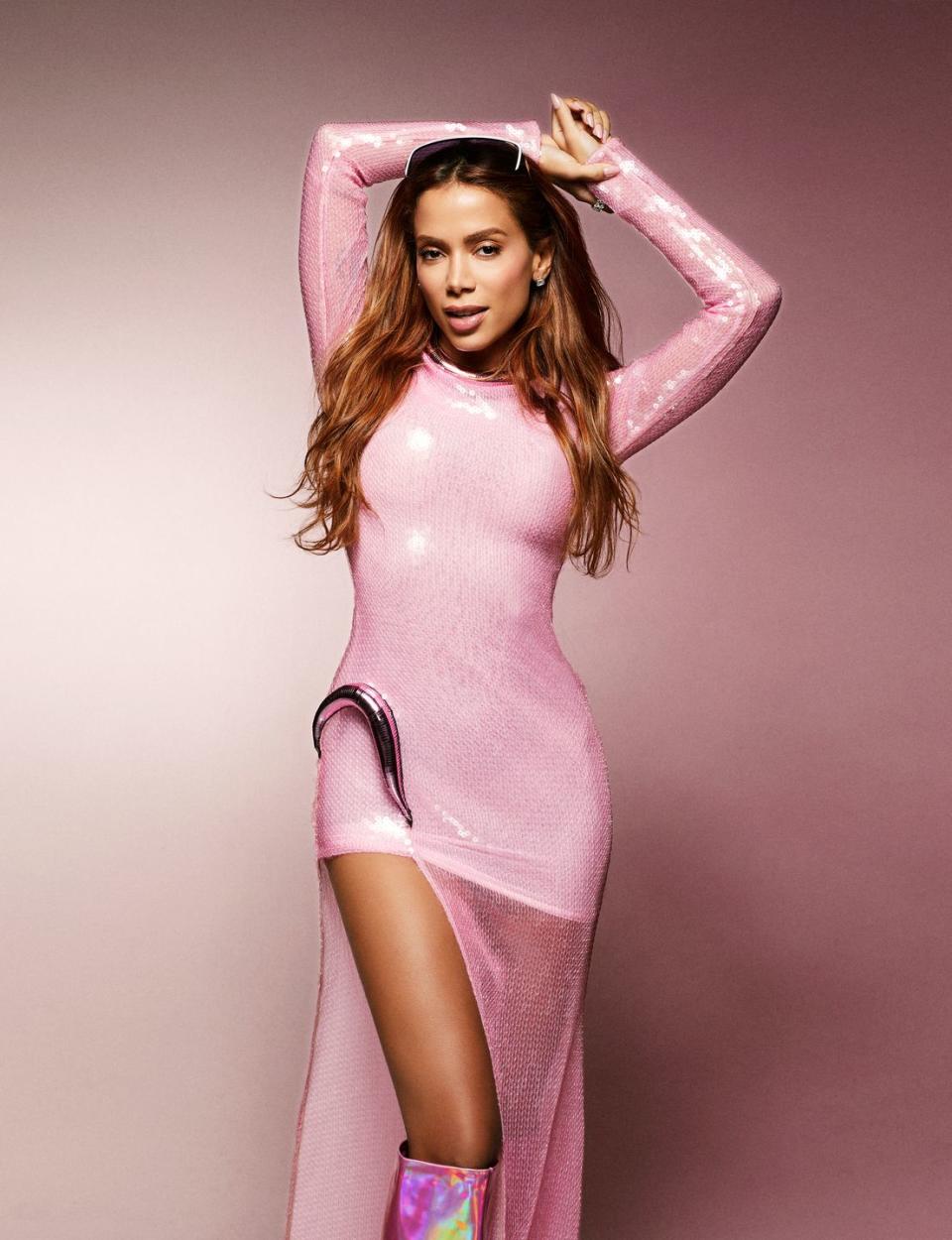
She’s also focusing on her friendships – she’s the “spiritual retreat” friend. When anyone has a problem, they can call Anitta and stay with her. She’s considering her romantic relationships, too. “It takes time for my partner to understand that I'm different from the person on stage,” she says. “They think they're going to meet the ‘yang’. I think that's my biggest challenge: to make my partners see me, and not that persona.”
In September, Anitta walked to Everest base camp. “When you climb Everest, you can't stay on the top. You'll die! You have to go down. You can go to another mountain, you can come back again, but it’ll not be the same feeling,” she explains. “I will reach new goals, new peaks.” The week after we speak, Anitta is documenting her Rio carnival grand finale on Instagram, starting with a 3AM call-time and 24 hours of glam, press, performing, partying. She performs to an audience of millions alongside Latin music greats. I compare the woman I met, and her parting words, with the superstar on stage: “It's amazing to kill it in the game, but life isn't only about that. It's important to take time for myself.”
Grey lead look: Dress Dolce & Gabbana, shoes Rene Caovilla, bracelet Pamela Zamore and rings Yvonne Leon
Cover look: Pant Bustier by Ashi, shoes by DSquared and jewellery by Pomellato
Photography by: BERNARDO DORAL, Interview by: ANNA CAFOLLA, Styled by: CASSIE ANDERSON, Hair: DIMITRIS GIANNETOS at OPUS Beauty using NEXXUS, Makeup: ALLAN APONTE, Nails: MO QIN AT THE WALL GROUP, Global Editorial & Brand Director: CHLOE O'BRIEN, Digital Design Editor: JAIME LEE
You Might Also Like

